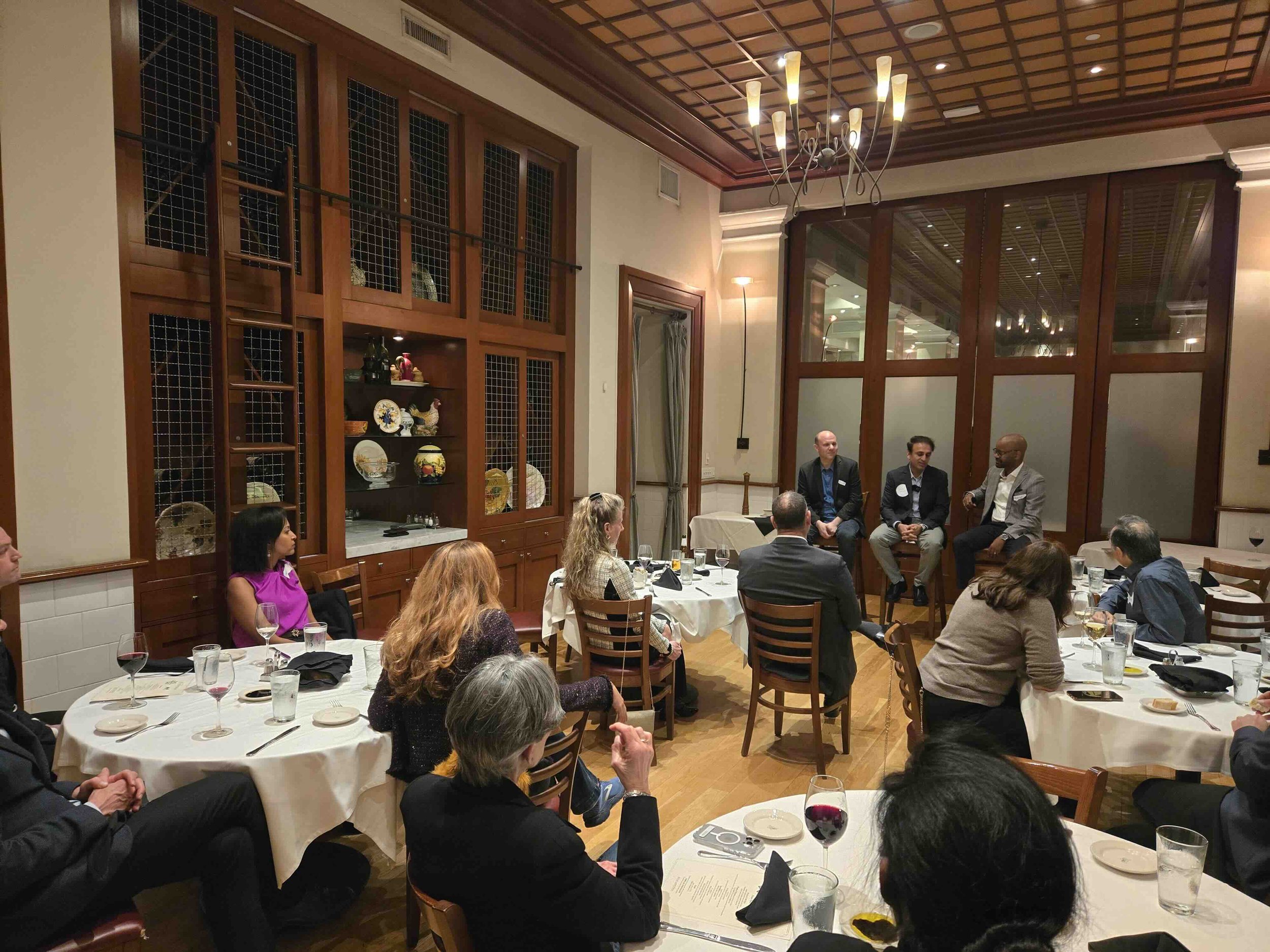Executive Roundtable Recap: Navigating the Evolving MedTech Landscape
Key Takeaways from our recent "Thriving in Uncertain Times" Executive Roundtable
Key Takeaways from our recent "Thriving in Uncertain Times" Executive Roundtable
Regulatory Updates and Cutting Through the Noise
We started by acknowledging how the volume and significance of recent changes in government policy, whether for clinical decision support, diversity in trials, or other areas, can feel overwhelming. Several of you mentioned that larger companies must navigate an especially vast array of issues. Strategies were shared for filtering the “noise” and not being distracted and worn down by tracking the news from Washington DC hourly. (e.g., holding brief weekly huddles or even limiting news intake to once a week to focus on what truly matters on a longer-term basis.)
Med Devices and the Market Outlook
A reassuring point from our conversation was the relative optimism about the medical device sector. For various reasons, including the person nominated to be the new FDA Commissioner, there was a general feeling that the FDA’s regulation of medical devices may require relatively minor adjustments, in areas such as clinical trial cohorts or AI submission protocols, compared to the regulatory changes potentially facing the pharmaceutical and food industries.
Generative AI in Our Work
To no one’s surprise, a significant portion of our discussion centered on AI's impact on medical devices and medical device manufacturers. Many of you described how your teams already use powerful tools, enabled by powerful GPUs, to conduct new product development. Your organizations are integrating Microsoft Copilot and creating internal Bing AI sandboxes to improve everything from product features to routine communications. One standout point was how AI has helped make internal emails sent in English (for example, those from native speakers of a non-English language) far clearer and how chatbots could streamline HR processes. There was a thoughtful concern about the pressure to maintain agility and continue seeking practical and impactful AI applications in our organizations. Even relatively minor operational improvements through AI might give a company an edge over its competitors.
Global Operations, Supply Chains, and Flexible Work
We also discussed the significant challenges facing our companies’ global operations. For example, the potential for increased tariffs (e.g., a possible 30% US tariff imposed on the import of Chinese-made components) was discussed alongside the importance of rethinking supply chains and considering more local sourcing.
On a related note, balancing different return-to-work models across an enterprise was another key theme. While manufacturing and logistics teams might need to be in the office five days a week, other teams (like marketing) operate on a three-day-in-the-office schedule.
Improving Patient Outcomes
Our collective commitment to patient care was a recurring discussion thread throughout the evening. Whether talking about sensor-enabled implants that can monitor recovery after surgery or the ethical use of anonymous patient data for better epidemiological insights, many of you emphasized that (when done well) even minor improvements in our devices and how we deliver them can impact patient outcomes.
Kwame Ulmer from MedTech Impact Partners to Deliver Keynote at MedTech Malta 2024
Each year, the world’s leading medtech and healthtech innovators, experts, and investors converge at MedTech Malta, setting new standards for the industry. MedTech Malta 2024 promises to be no exception, and among the distinguished keynote speakers is Kwame Ulmer, Managing Partner at MedTech Impact Partners, who will share his insights and expertise on the global stage. With a distinguished career spanning over two decades in digital health, cardiovascular care, and ophthalmology, Ulmer has played pivotal roles, including serving as Deputy Division Director at the FDA and Vice President of Regulatory Affairs/Quality Assurance at Fortune 150 company, Danaher. His extensive background in both the public and private sectors positions him as a leading voice in MedTech innovation.
Each year, the world’s leading medtech and healthtech innovators, experts, and investors converge at MedTech Malta, setting new standards for the industry. MedTech Malta 2024 promises to be no exception, and among the distinguished keynote speakers is Kwame Ulmer, Managing Partner at MedTech Impact Partners, who will share his insights and expertise on the global stage. With a distinguished career spanning over two decades in digital health, cardiovascular care, and ophthalmology, Ulmer has played pivotal roles, including serving as Deputy Division Director at the FDA and Vice President of Regulatory Affairs/Quality Assurance at Fortune 150 company, Danaher. His extensive background in both the public and private sectors positions him as a leading voice in MedTech innovation.
Key Insights into Global MedTech Trends
Ulmer’s keynote builds on his 2023 address titled Future Proof Your Global Company, which explored crucial industry topics such as investment trends, regulatory shifts, and strategies for companies aiming to enter the U.S. market from Europe. His talk at MedTech Malta 2024 will dig deeper into these areas, offering attendees a comprehensive look at the evolving challenges and opportunities within the MedTech sector.
Kwame Ulmer, said, “As the MedTech industry continues to innovate, one of the greatest challenges remains balancing rapid technological advancements with regulatory and reimbursement frameworks. Understanding both the U.S. and European systems is critical for companies looking to scale effectively across borders.”
Parallels Between U.S. and EU Regulations
Ulmer’s 2023 keynote highlighted the growing alignment between U.S. and European regulatory frameworks. He noted that while Europe has developed a robust system ensuring device safety and efficacy, the main obstacle lies in harmonizing reimbursement processes with the fast pace of digital health advancements. Recent developments at the FDA, including new guidelines for the 510(k) pathway, reflect ongoing efforts to streamline regulatory pathways. However, Ulmer emphasized that reimbursement remains the top challenge for MedTech companies navigating global markets.



